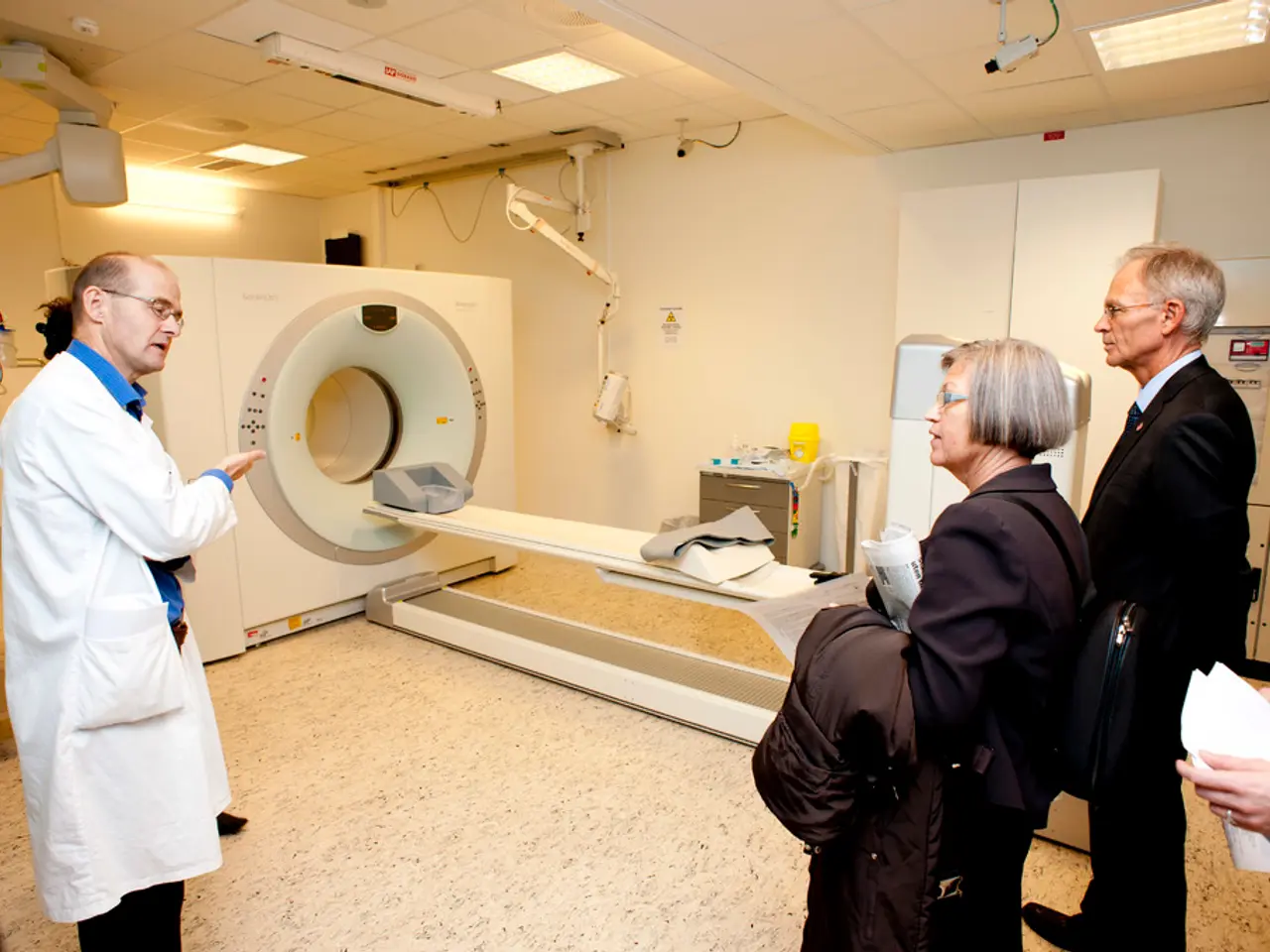Urgent patients in Latvia to receive funded medication
In an effort to address the challenges faced in the healthcare sector, particularly with regards to the budget for reimbursable medicines, Latvia's National Health Service (NVD) has announced a new initiative aimed at optimising the management of reimbursable medicines.
The initiative, which is set to come into effect from 1st July 2025, will see the establishment of a medical council composed of specialists from three university hospitals: the Children's Clinical University Hospital, Pauls Stradiņš Clinical University Hospital, and Rīga Eastern University Hospital. This council will assess the need for treatment of individual patients whose necessary medicines are not currently listed as reimbursable.
The funding for the purchase of medicines or medical devices in urgent cases will come from the budget for reimbursable medicines, with EUR 1 million being reserved annually for this purpose. It is expected that over 700,000 Latvian residents will receive reimbursable medicines in 2025, with the Ministry of Health planning to allocate more than €307.8 million from the state budget for this purpose.
The medical council's decisions will be made on a case-by-case basis, taking into account international clinical guidelines and the patient's specific needs. The new procedure supports the review and potential approval of treatments not currently listed as reimbursable, thereby expanding the provision of life-saving therapies.
This initiative is part of Latvia's ongoing efforts to improve healthcare efficiency and outcomes. While the budget for medicine compensation in Latvia is one of the lowest in the European Union, the country is actively engaging in international cooperation, such as the EU-funded “Development of a Cancer Expertise Network” project.
Inspired by successful practices in other EU nations, Latvia aims to improve the affordability and accessibility of reimbursable medicines by adopting cost-containment and efficiency measures. These measures could include automatic substitutions, improved market competition, and international cooperation in healthcare projects.
If more detailed specifics of the NVD initiative become publicly available, they will likely focus on balancing patient access with budget sustainability by adopting innovative reimbursement policies, as seen in other EU member states' efforts. The draft regulations for this new procedure were developed in cooperation with patient organizations, ensuring a patient-centric approach to the initiative.
- EU member states are collaborating on the "Development of a Cancer Expertise Network" project, which Latvia is actively participating in, aiming to enhance the affordability and accessibility of reimbursable medicines and mental health therapies within the European Union.
- The Latvian medical council, established by the National Health Service (NVD), will assess the individual treatment needs of patients requiring medicines not currently listed as reimbursable, which may expand the provision of life-saving therapies and health-and-wellness interventions.
- In line with the EU-inspired initiatives, Latvia's new healthcare policy is expected to include cost-containment measures, such as automatic substitution of generic medicines, improving market competition, and international cooperation, to optimize the management of reimbursable medicines and medicare budget sustainability.








